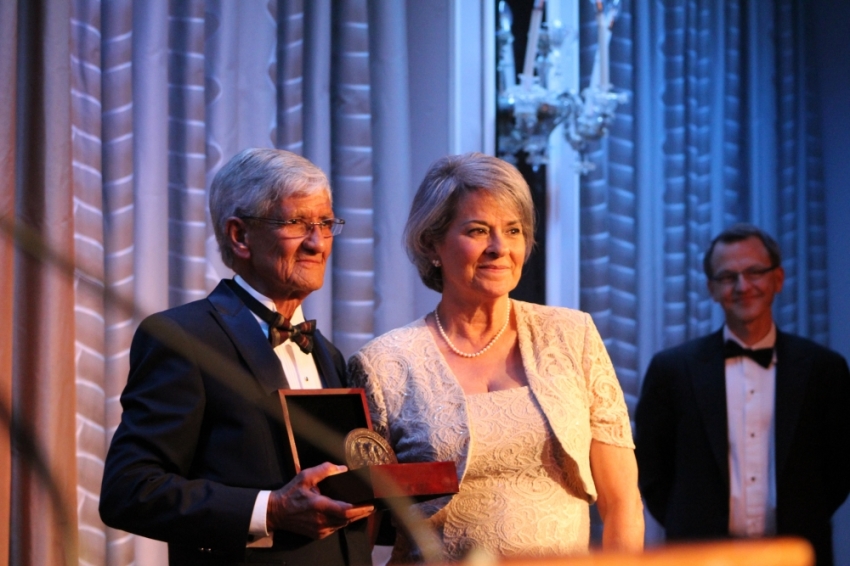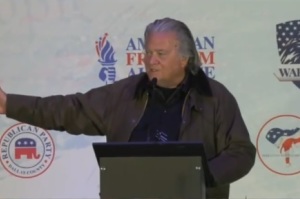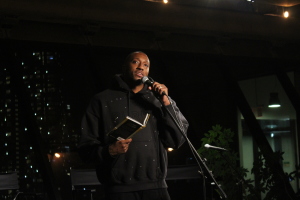Cuban Artist Who Spent 22 Years in Prison for Defying Castro Regime Receives Religious Freedom Award

NEW YORK — Cuban artist and poet Armando Valladares who spent 22 years in Fidel Castro's gulags for refusing to put a placard on his desk at work that said: "I am with Fidel," was awarded the Canterbury Medal Thursday night in New York City. The award is the highest honor bestowed by the Becket Fund for Religious Liberty.
Valladares painted and wrote poetry during his time in prison using any materials available to him, such as medicines, burnt nylon, and even his own blood.
On Thursday night at The Canterbury Medal Dinner some of Valladares' original paintings were on display at The Pierre Hotel where he was honored.
The paintings, along with some of Valladares' writings, were smuggled out of prison and later out of Cuba by his wife, Martha, who published them to critical acclaim. This year marks the 30th anniversary of the 78-year-old's New York Times best-selling memoir, Against All Hope: A Memoir of Life in Castro's Gulag.
In eight of the 22 years he spent in prison, Valadares was left naked in solitary confinement. He was also tortured with relentless beatings and endured 16 hunger strikes, one of which left him wheelchair bound for years. He also lived in constant fear of being shot.
His wife led an international campaign for his release, and Amnesty International adopted him as a prisoner of conscience. He was released in 1982.
In accepting the award Thursday, he said he believed God chose him to make the extraordinary move of defiance.
"I'm not an extraordinary man. In fact, I'm quite ordinary, but God chose me to be something quite extraordinary," Valladares said through an interpreter.
"When I was 23 years old, I refused to do something that seemed at the time very small. I refused to say the words: 'I am with Fidel Castro.' First, I rejected that they wanted to put a sign on my desk. … After years of torture and watching many of my cellmates die, I still refused to say those words," he said.
"Had I said those three words, torture would have ended and I would have been released from prison. My story has proved that a small act of defiance can mean everything for the friends of liberty. They did not keep me in jail for 22 years because of my refusal to say those three words that apparently meant nothing. In reality those three words meant everything. For me to say those words would have constituted a type of spiritual suicide. Even though my body was in prison and it was being tortured my soul was free and it flourished," he continued.
Valladares called on the group of influential religious liberty advocates to stand up for their conscience at all times.
"Even when we have nothing, each person and only that person possesses the key to his or her own conscience, his or her own sacred castle. In this respect, each of us though we may not have an earthly castle or even a house, each of us is richer than a king or queen. The Little Sisters of the Poor know this," he said, pointing to the nuns who are fighting an Obamacare mandate because of their religious objections to abortion-inducing drugs and contraceptives.
"They may be called the Little Sisters of the Poor, but they are rich in that they live according to their conscience which no government bureaucrat can [erase]. They know what my body knows after 22 years of cruel torture, [if] they signed that form that the government demands, they will be violating their own conscience and commit spiritual suicide," he continued.
"If they did this they would forfeit the true and only wealth they have by abandoning the castle of their conscience. And so I salute the sisters of the poor for their seemingly small act of defiance," Valladares said to applause.



























